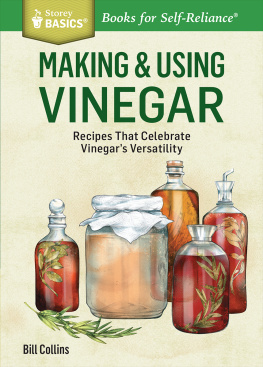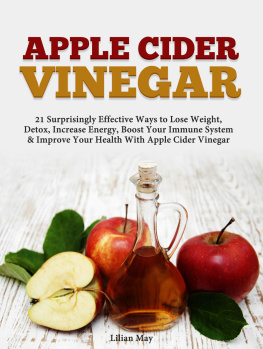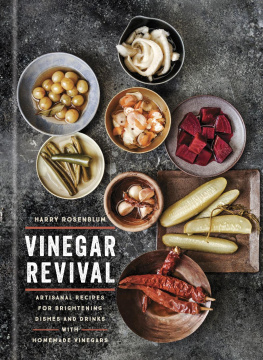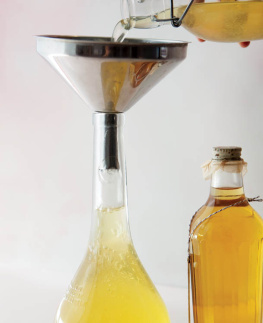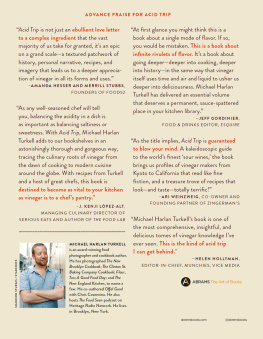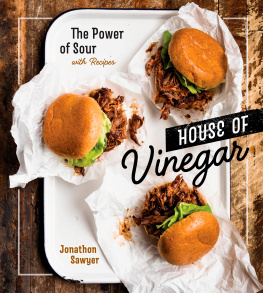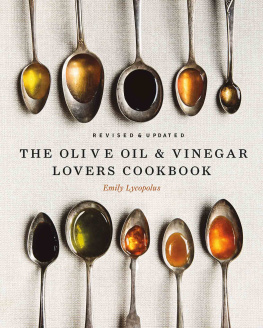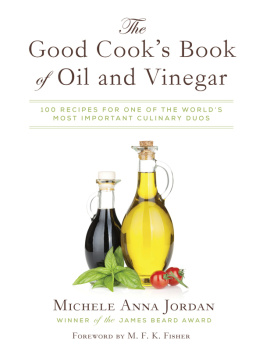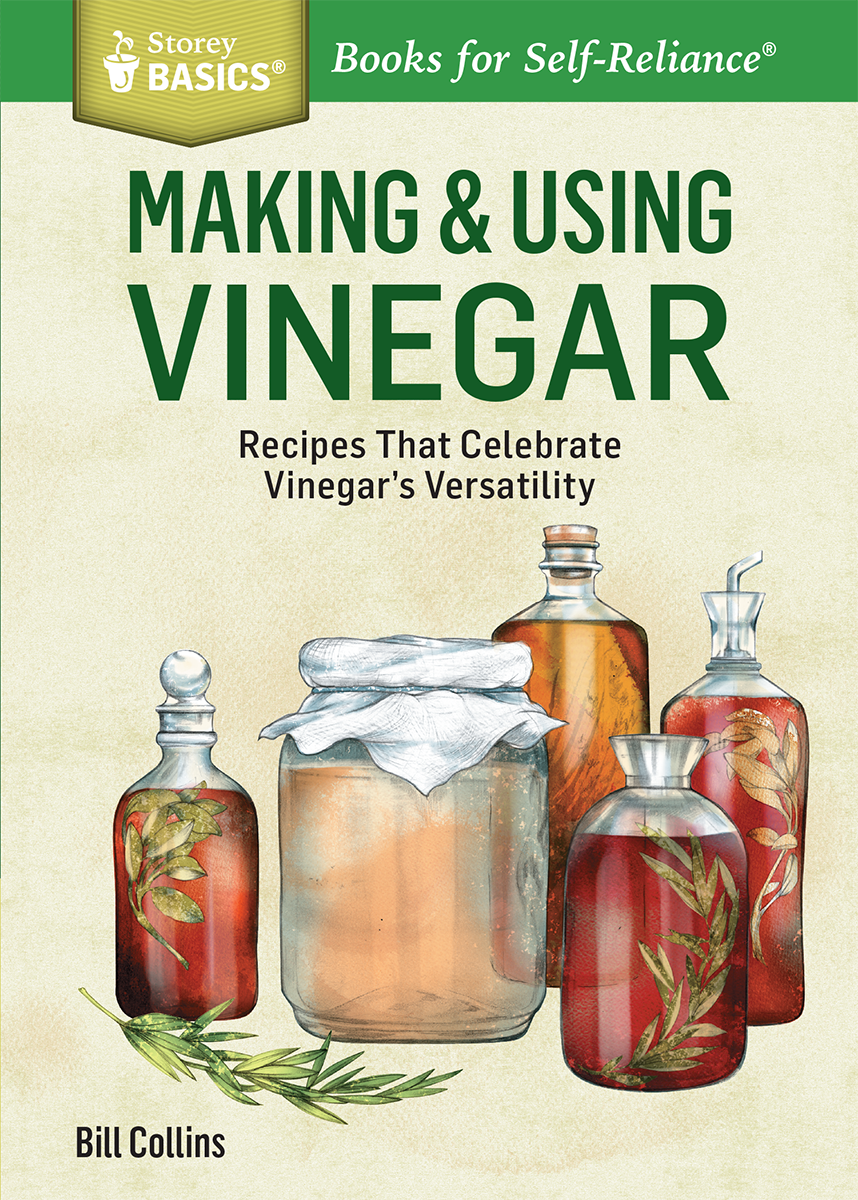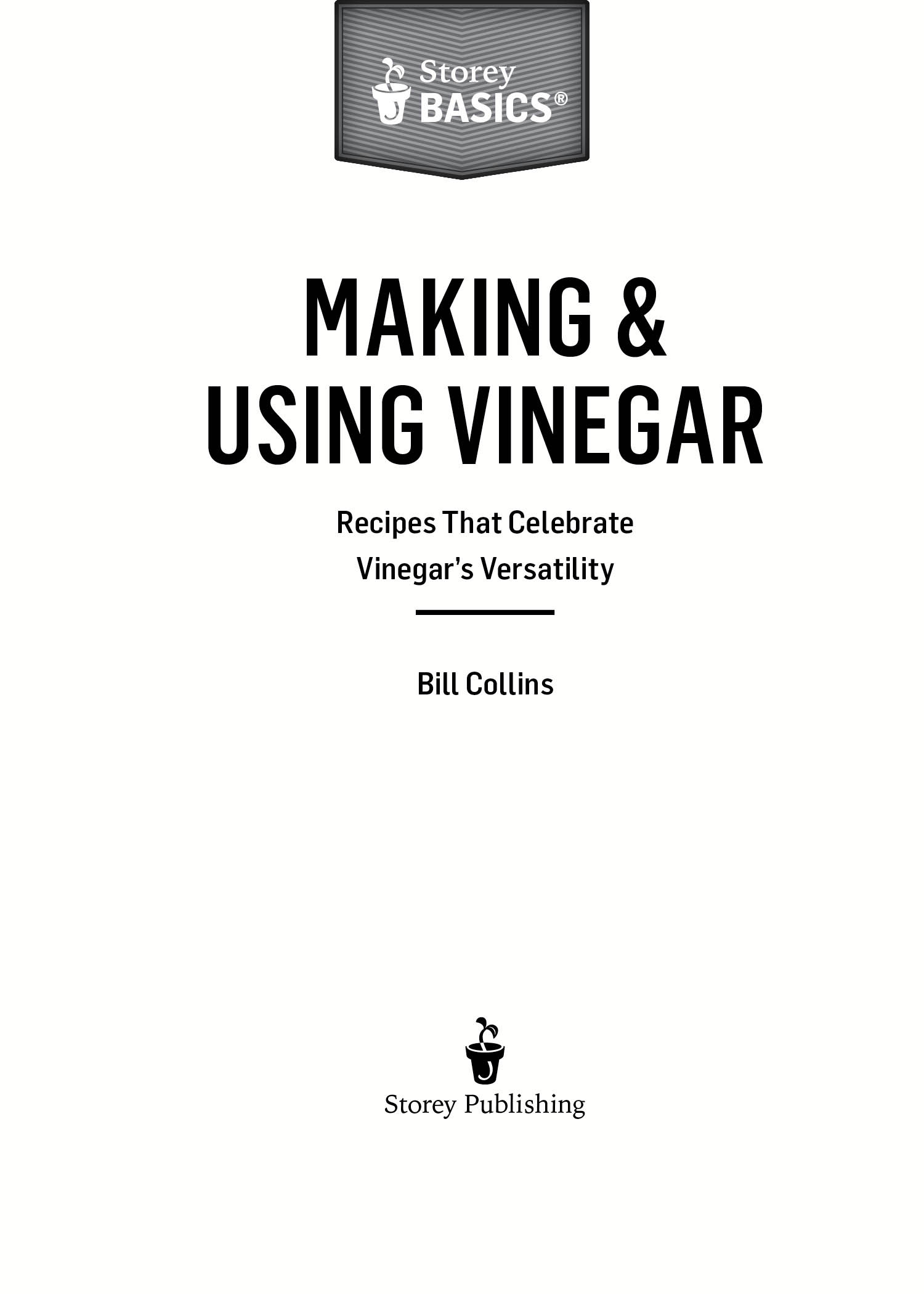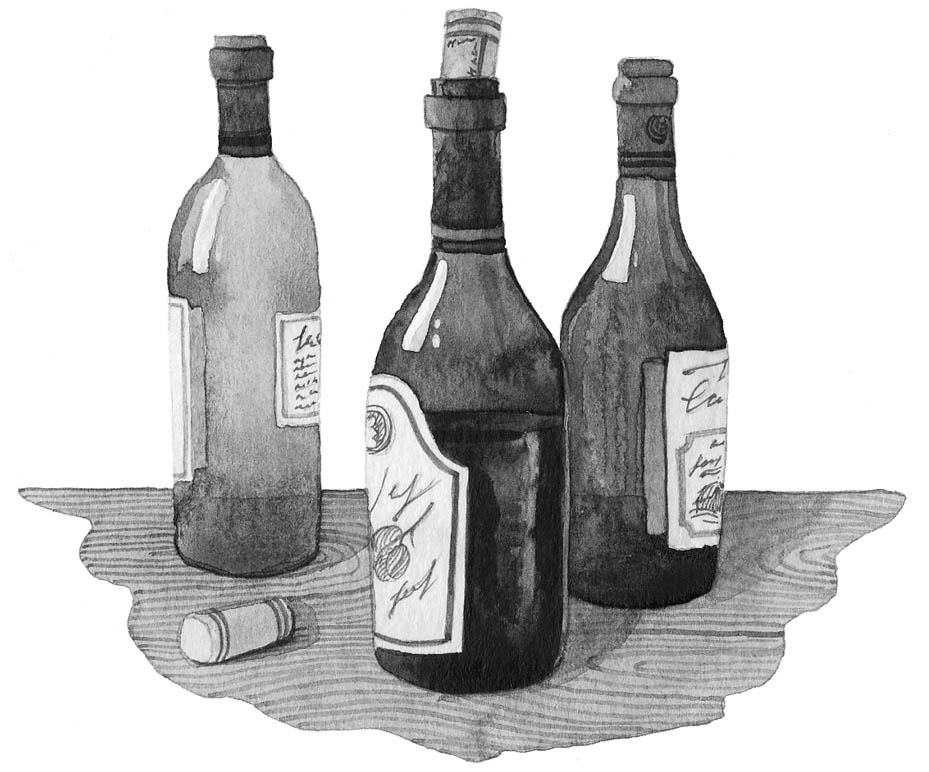Contents
To Michael Palmer, the finest thriller writer ever, and an even better friend, mentor, and fan of my food. You are truly missed.
Acknowledgments
My wife, Karen, who never mentioned that our house smelled like vinegar for months. Many months.
Todd Lockwood, wine guy and friend extraordinaire, for his help in turning fine wine into vinegar.
My cousin Ruth Pearl, who got me rolling with vinegar and baking.
Dr. Judy Giordan, chemist and food genius, who talked endlessly with me about the science of vinegar.
Joan Parker, my awesome literary agent, whose patience and understanding know no bounds.
Storey Publishing, and the terrific people who have been wonderful to me since day one, including Margaret Sutherland, Matt LaBombard, and Mollie Firestone.
Beer and Winemaking Supplies in Northampton, Massachusetts. They graciously answered my questions and supplied all kinds of goodies to make and store vinegar.
The Tubby Olive in Philadelphia, Pennsylvania, who shared their love of vinegars on a beautiful autumn day.
Cardenas Oil and Vinegar Taproom in Philadelphia, Pennsylvania. Their introducing me to a South African vinegar by Rozendal was the tasty end to a fun day.
Stonewall Kitchen Cooking School, York, Maine. A wonderful school, with terrific people who make my teaching there very easy.
Part One
Introduction to Vinegar
The discovery of vinegar is an early example of true visionary genius. Thousands of years ago someones wine went bad and it sat around for weeks, maybe months. Upon tasting it, they found it to be incredibly harsh with a deep acid bite. Thats when they decided that this would be the magical addition to improve the taste of food all around the world.
Vinegar can make simple foods sparkle. It can make a good dish great. And it can make a great dish memorable. Its a lot to ask of one ingredient, but it does its job well. Thats because vinegar is easily the most contradictory food ever created. Its both mysterious and common. Its easy to make, yet almost everyone rushes out to buy it. We dont like to eat foods that are tart and acidic, but we use vinegar in everyday foods such as salads, savory dishes, and even desserts. We combine vinegar with other ingredients all the time. Yet how often do you taste a spoonful of vinegar?
Using vinegar can make you a better, more interesting, and more confident cook by providing a balance thats often lacking in food. When vinegar is combined with something mild, sweet, or spicy, its benefits jump out. Think of vinegar as a member of a sports team. If you dont field all of the players, you cant win the game.
In all of my years teaching cooking lessons, when I include recipes that use vinegar, I usually get asked the same questions. Is there a difference between vinegars? How long does vinegar last? Is it necessary to have nine vinegars in the pantry? And my favorite: are all balsamic vinegars the same? As youll see from this book, the answers are yes, a very long time, no, and definitely no.
What Is Vinegar?
The word vinegar, translated from the French, means sour wine. Quite simply, vinegar is something containing sugar that has been fermented into a drinkable alcohol, in this case, ethanol. This continues to ferment and become vinegar. If youre someone who loves wine, then its gone bad. If youre someone who loves vinegar, then something good has happened!
Usually, the source of the ethanol for vinegar is wine. But it doesnt have to be. It can be apple cider that has turned into hard cider. Or beer. This is just the first step. In its most basic form, vinegar is ethanol that has continued the fermentation process. At this point, good bacteria starts to have its effect, combined with air. The result is the forming of acetic acid, which is the main component of vinegar. This is what gives vinegar its tart, biting taste. The liquid that becomes vinegar has an acid level thats between 4 and 7 percent of its volume.
Thats the short version. The longer one is almost as simple: You make ethanol, and then you convert it into acetic acid. The first step is to take any food item that contains natural sugars. With some added yeast, the sugars will then ferment into alcohol. The second step involves adding oxygen, found in air, combined with a vinegar mother. A mother is like the starter for yogurt or sourdough bread. Its made from starch, from the sugar family, plus a healthy bacteria, which then combines with the liquid that you want to turn into vinegar.
With the mother as the foundation for the vinegar, all you have to do is add the liquid of the flavor that you want, and youll have that vinegar within a few weeks. If you add beer, youll have malt vinegar. If you add red wine, youll have red wine vinegar. Adding hard cider, made from apples, will give you cider vinegar. The common ingredient in these is that they all have the alcohol/ethanol, which feeds the healthy bacteria in the mother to make vinegar.
Vinegar can be also created just with the ethanol and oxygen. That is, pour a bottle of wine into a larger, wide-mouth jar and let it sit. But this can take months to create and may not even result in vinegar. A number of things along the way, such as temperature fluctuations, bacteria, and dust in the air, can derail and ruin a motherless vinegar. But if you use a mother, with its good bacteria, your vinegar will turn out well, and faster.
In some cases, ethanol can be converted into vinegar in less than three weeks. While its true that three weeks in this Internet age of instant gratification seems like forever, you dont have to do anything to it while its fermenting. Just go about your life and come back after a few weeks to see how its going.
The Essential Kitchen Vinegars
If youve done any cooking , then youll have some vinegar in your kitchen. It might be one bottle. Or three. Or maybe fourteen. And if youre new to cooking, you might be wondering why anyone would buy, or need, all of that vinegar. As a starting point, I think most home cooks can prepare most foods with three vinegars. But to make life easier, Id suggest five, all of which are commonly available in most supermarkets with choices ranging from generic and supermarket brands to national and international brands.
- Apple cider vinegar
- Balsamic vinegar
- Red wine vinegar
- Rice vinegar
- Distilled white vinegar
Apple Cider Vinegar
When it comes to cooking, cider vinegar is the most versatile vinegar. You can use it in vinaigrettes and pickling, two of the most popular uses of vinegar. Cider vinegar comes from crushed apples. If youre making it yourself, its best made with hard cider. This is also the vinegar that is most commonly available in markets as both organic and nonorganic. The organic option offers the mostly anecdotal evidence of being good for digestion. And many people believe that a daily tablespoon of organic cider vinegar, usually diluted with water and honey, will help with weight loss. The question of whether it really works is debatable, but if you are going to drink vinegar the important thing is to dilute it. This is true with all vinegars. If you dont dilute it, you can get a painful burn in your throat.

